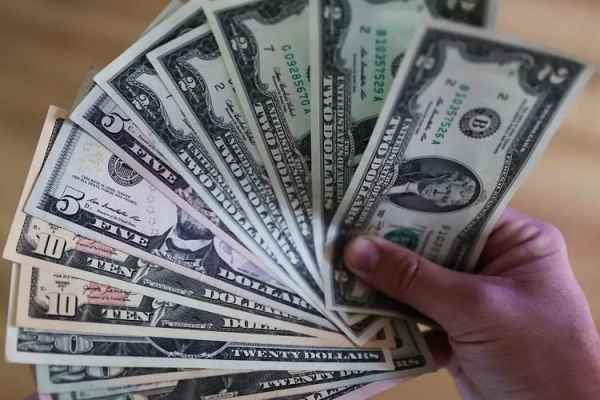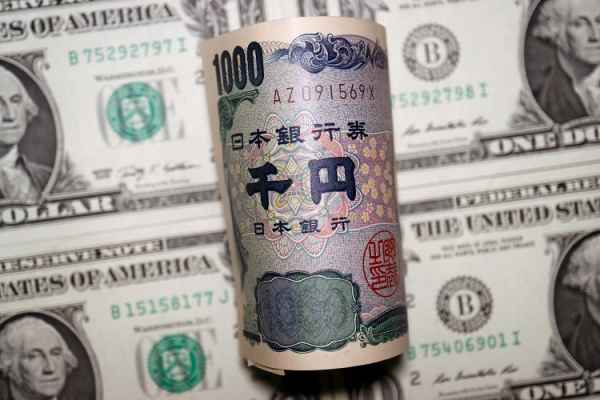The turmoil in EUR/USD was triggered by a surge in CDS and the fall of Deutsche Bank's stock, the largest bank in Germany.
The US dollar index (DXY) rose about 0.6% to the 103.30s, while EUR/USD plummeted over 1.0% to the low 1.0710s in Friday's European session (March 24). The drastic change in the situation was triggered by the emergence of news reporting on the Deutsche Bank scandal, Germany's largest bank.
 EUR/USD Daily chart via TradingView
EUR/USD Daily chart via TradingView
Several major central banks are eager to raise interest rates again after dealing with some banking crises that spread across America and Europe last week. They are persistent in emphasizing the importance of raising interest rates to curb inflation while setting aside the threat of banking instability that looms. However, the latest developments show that market participants generally remain concerned about the potential spread of a global banking crisis.
CNBC reported that Deutsche Bank's stock plummeted 14% today, following a surge in Credit Default Swaps (CDS) over the past few days. CDS is a form of insurance for bondholders to protect them from the possibility of a company defaulting.
With this sharp decline, Deutsche Bank's stock price has lost one-fifth of its value since the beginning of this month. But Deutsche Bank is not alone. The largest European bank stocks, including Commerzbank, Societe Generale, UBS, Barclays, and BNP Paribas, have fallen simultaneously.
Unsurprisingly, the euro was dragged down as well. High-risk currencies such as the pound sterling, Australian dollar, and New Zealand dollar were also trampled. On the other hand, the US dollar played its role as a safe haven and tended to strengthen amidst the turmoil.
Deutsche Bank's fundamentals are better than Credit Suisse, which was forced to be acquired by UBS some time ago. Deutsche Bank has recorded profits for ten consecutive quarters. Its annual net income has increased by tens of percent to reach a record high of 5.6 billion euros in 2022. Various other ratios indicate that its liquidity is quite adequate.
Despite this, experts warn that the global financial situation will become increasingly tight in 2023 due to high-interest rates and slower economic growth. As the financial conditions become tighter, the risk of stress spreading to the banking sector also increases.
Larry McDonald, the founder of Bear Traps Report, told CNBC, "The Silicon Valley Bank issue brings more attention to the banking sector. So, banks like Credit Suisse and Deutsche Bank have been managed very poorly for decades —and we're talking about very poor management and bad decisions— suddenly, investors all over the planet, focus on that."
Officials from the US Department of Justice have also revealed that several European banks are being investigated for their involvement in helping Russian businessmen evade sanctions imposed by the West in the Russia-Ukraine dispute. Some of the banks mentioned include Credit Suisse and UBS.

 Dedicated FREE FOREX VPS
Dedicated FREE FOREX VPS Free FOREX Virtual Private Server
Free FOREX Virtual Private Server MT4 Demo Contest, Get $500
MT4 Demo Contest, Get $500 Sign Up for an Account, Claim 60% Deposit Bonus
Sign Up for an Account, Claim 60% Deposit Bonus Free MT4/MT5 VPS 2024
Free MT4/MT5 VPS 2024 Send E-mail and Get Free Merchandise
Send E-mail and Get Free Merchandise $1K Refer a Friend Bonus for Pepperstone Pro clients
$1K Refer a Friend Bonus for Pepperstone Pro clients Maximize Your Earnings with 100% Deposit bonus
Maximize Your Earnings with 100% Deposit bonus Trade to Win, $5,000 Monthly Demo Contest
Trade to Win, $5,000 Monthly Demo Contest Claim 30% + 15% Deposit Bonus from LiteFinance
Claim 30% + 15% Deposit Bonus from LiteFinance






